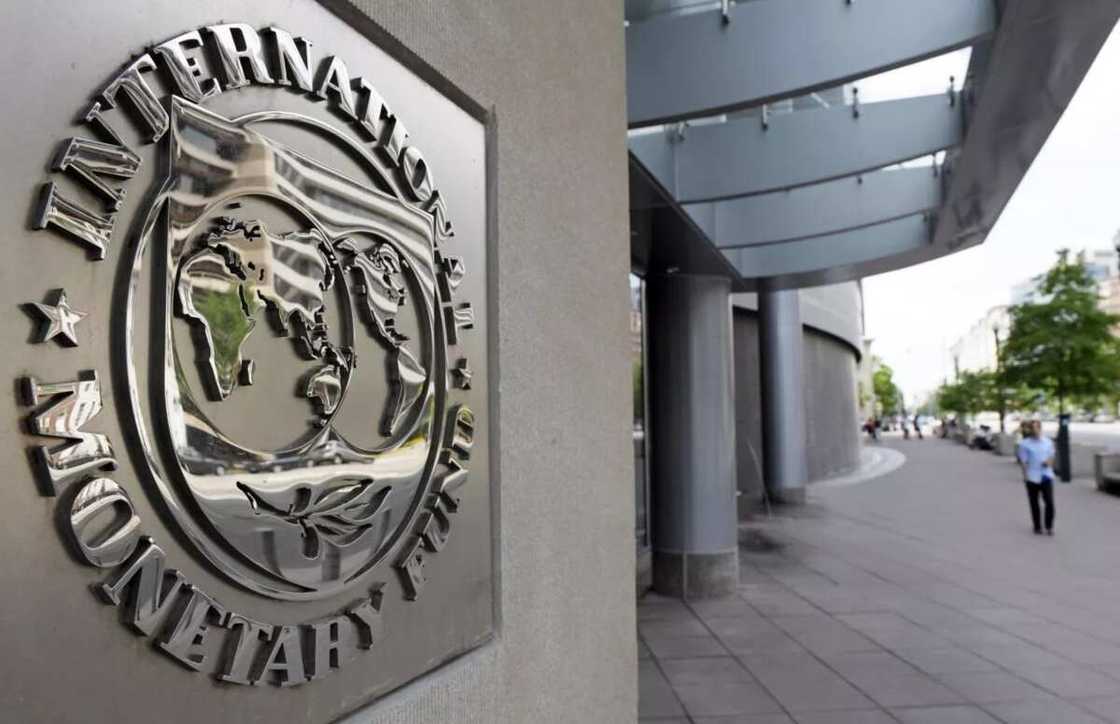IMF Proffers Solution to Nigeria's Borrowing Appetite as Debt Rises Steadily to N77tn
- IMF has once again called for reforms in Nigeria, especially in the areas of debt management and revenue
- The global institution noted that at an 8% tax-to-GDP ratio, Nigeria ranks among the lowest globally
- However, the IMF has put forward what it believes will help Nigeria reduce its debt burden, which is expected to hit N77trn
The International Monetary Fund (IMF) has advised Nigeria's government to implement urgent reforms to address the country's rising debt.
The Debt Management Office (DMO) reported that the country’s debt stock, as of December 2022, had reached N46.25 trillion, and experts believe it will hit N77 trillion in May.
The IMF warned that the current borrowing rate is unsustainable and could lead to severe problems in the future.

The global institution specifically called on the Nigerian government to raise incomes from taxes, particularly through ensuring compliance and expanding the tax net to generate more revenue.
PAY ATTENTION: Follow us on Instagram - get the most important news directly in your favourite app!
It stressed that taxation would help lessen the government's continuous need to borrow.
The IMF stated this in its latest Fiscal Monitor titled ‘On the path to Policy Normalisation’ released Wednesday, April 14, 2023, during its joint spring meetings with World Bank.
Speaking on the report, the Division Chief, Fiscal Affairs Department, IMF, Paulo Medas, said:
"Our message regarding Nigeria is that there is a requirement for a plan of action in the medium term to gradually decrease the country's susceptibility to debt, which stems from the fact that Nigeria's tax revenues are notably insufficient.
"So, that makes it more vulnerable to these types of shocks and tightening global conditions."
He also pointed out that Nigeria has not fully benefited from windfalls in oil prices in the past, as a significant portion has been spent on untargeted energy subsidies.
"By shifting to more targeted subsidies, Nigeria can reduce its fiscal deficit and allocate resources towards other areas that can promote future growth, such as education and health."
"Implementing more targeted energy subsidies can be beneficial for fiscal, debt dynamics, and growth.
"It is recommended that Nigeria expands its tax coverage and enhances adherence to tax regulations since its tax revenues are currently among the lowest in the world, proportionate to its Gross Domestic Product.
"There is significant room for expanding the tax base and improving compliance."
Nigeria repays China, Islamic bank, others N3.63tn debt
Meanwhile, in another report, Legit.ng revealed that Nigeria has successfully repaid part of its debt to countries and institutions.
The report provided a breakdown of how the money was paid to China and Islamic banks, among others.
Although the repayment is good news, the Nigerian government has borrowed another N6.69 trillion.
Source: Legit.ng


